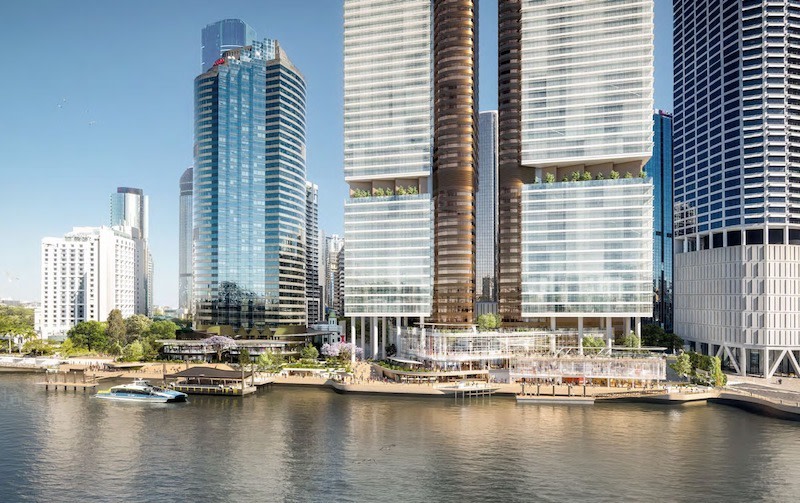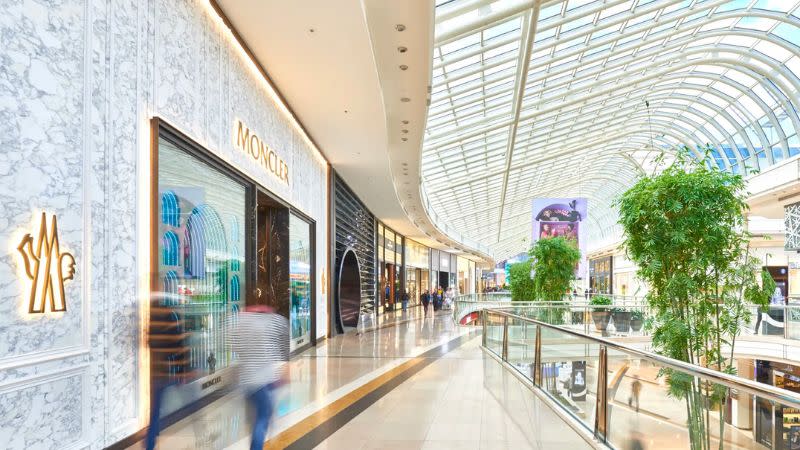Resources
Newsletter
Stay up to date and with the latest news, projects, deals and features.
Subscribe
Property giant Dexus remains buoyant with full-year profits up as it stays the course of building resilience to combat the challenges of what it calls a “complex environment”.
It has reported a net profit after tax of almost $1.62 billion—up 41.9 per cent—for the 12 months to June 30 boosted by uplifts in property valuations.
The company achieved adjusted funds from operations and distributions of 53.2 cents per security, a 2.7 per cent increase on the previous year.
“Dexus has demonstrated resilience, growing or holding distributions over the past few years despite the impacts of the pandemic,” Dexus chief executive Darren Steinberg said.
“Recycling assets has enabled us to maintain a strong balance sheet, giving us capital to fund our development pipeline and growing funds management business.”
But, he said, based on current expectations regarding interest rates, continued asset sales and barring unforeseen circumstances, it was forecasting a drop in distributions to 50 to 51.5 cents per security this financial year.
“We anticipate a challenging period over the next two years with rising interest rates, ongoing supply chain disruptions, a global energy crisis and geopolitical risks contributing to continued economic uncertainty.
“Higher interest rates are expected to impact our results in the 2022-23 financial year.”
The group development pipeline now stands at a cost of $17.7 billion, of which $10.3 billion sits within the Dexus portfolio and $7.4 billion within third party funds.
It reported it was “well progressed” in its preparations to activate two major city-shaping office projects—software juggernaut Atlassian’s new headquarters in Sydney’s Tech Central precinct, with construction due to start shortly, and Waterfront Brisbane, which it expects to begin later this year.
It also noted: “While higher interest rates and construction costs increase the commencement hurdles for our uncommitted projects, many of the projects in our city-shaping pipeline provide optionality around timing”.

Dexus indicated it remains focused on integrating AMP’s Collimate Capital real estate and domestic infrastructure equity platform, which will bolster the company's funds under management by up to $21.1 billion.
“Integration planning for the AMP Capital platform is advanced,” Steinberg said. “We are working with AMP and third party stakeholders across the AMP platform to achieve the conditions precedent … the transaction is expected to complete at the end of September 2022.
“Looking beyond the next financial year, we are set to emerge as one of the leading real asset managers in the Asia-Pacific region positioned to capitalise on underlying structural trends, and we are confident of continuing deliver long-term value.”
Meanwhile, shopping centre giant Vicinity Centres has continued its turnaround in the wake of the pandemic and a rebound in the retail sector.
It has reported a net profit of almost $1.22 billion for the 12 months to June 30—up from a $258-million loss the previous year.
Despite continued disruption from Covid-related lockdowns in NSW and Victoria and the outbreak of the Omicron variant in late December, funds from operations rose by 7.1 per cent to $598.3 million—boosted by an 8 per cent lift in net property income to $803 million.
The company’s strong results also reflected a net property valuation gain of $554 million.
“The 2021-22 financial year a year of recovery and progress at Vicinity,” chief executive Grant Kelley said.
“Our results highlight strong operational and financial execution in a recovering retail landscape, where consumers continued to show confidence and capacity to spend, and retailer confidence was robust.
“As we look ahead, Vicinity will continue to invest in its portfolio of assets to drive growth for both landlord and tenant.
“The strength of our balance sheet and our proactive approach to managing our capital provides us with the flexibility to navigate periods of uncertainty and at the same time, enables us to fund accretive investment opportunities, including our retail and mixed-use development pipeline.
“While we are mindful of inflation, rising interest rates and increased building costs, we are still seeing positive retail sales trends in our centres, and we cautiously anticipate a soft landing for the Australian economy over the next 12 to 18 months.”

Vicinity reported it was transitioning from planning to execution of its $2.9-billion retail and mixed-use development pipeline, which includes six major projects—in Chadstone, Box Hill Central and Victoria Gardens in Victoria, Chatswood Chase Sydney and Bankstown Central in NSW, and Buranda Village in Queensland.
“Our development pipeline represents an exciting phase of growth for Vicinity,” Kelley said.
“Importantly, given we own the land parcels earmarked for retail and mixed-use development, the pipeline is able to be flexed up and down in order to preserve the risk and return parameters of projects and the pace of capital deployment, thereby maintaining our strong balance sheet, credit ratings and disciplined approach to paying distributions.”
Vicinity declared a final distribution per security of 5.7 cents, bringing the full year distribution to 10.4 cents per security.